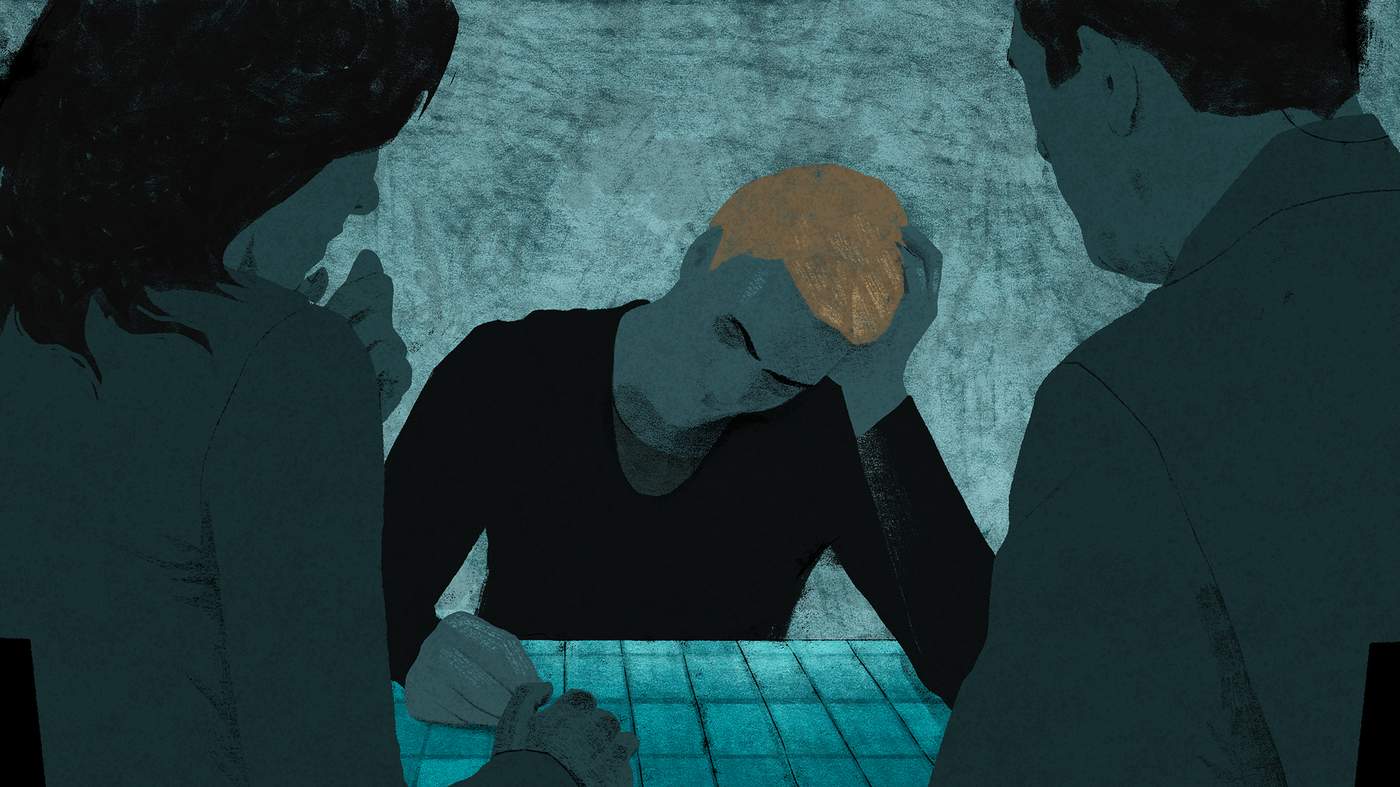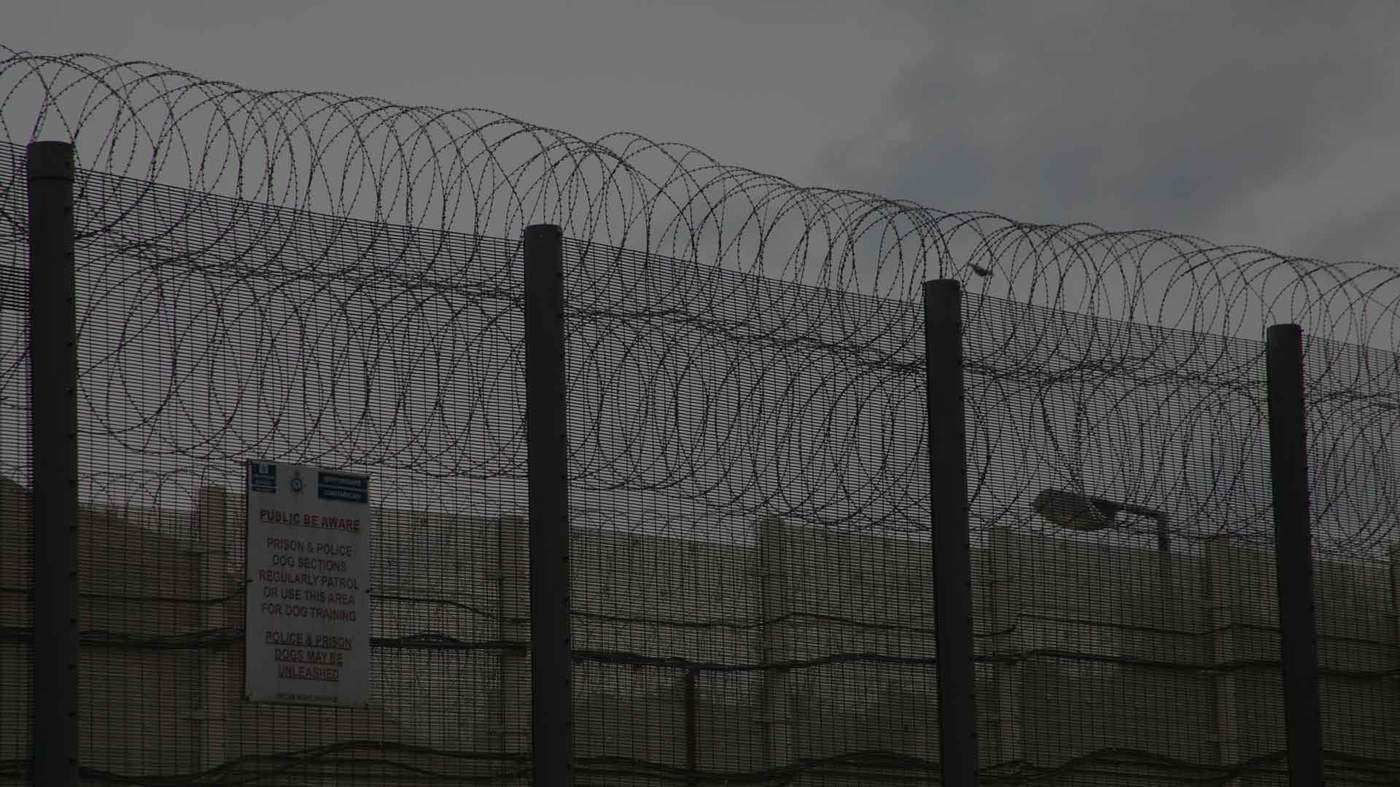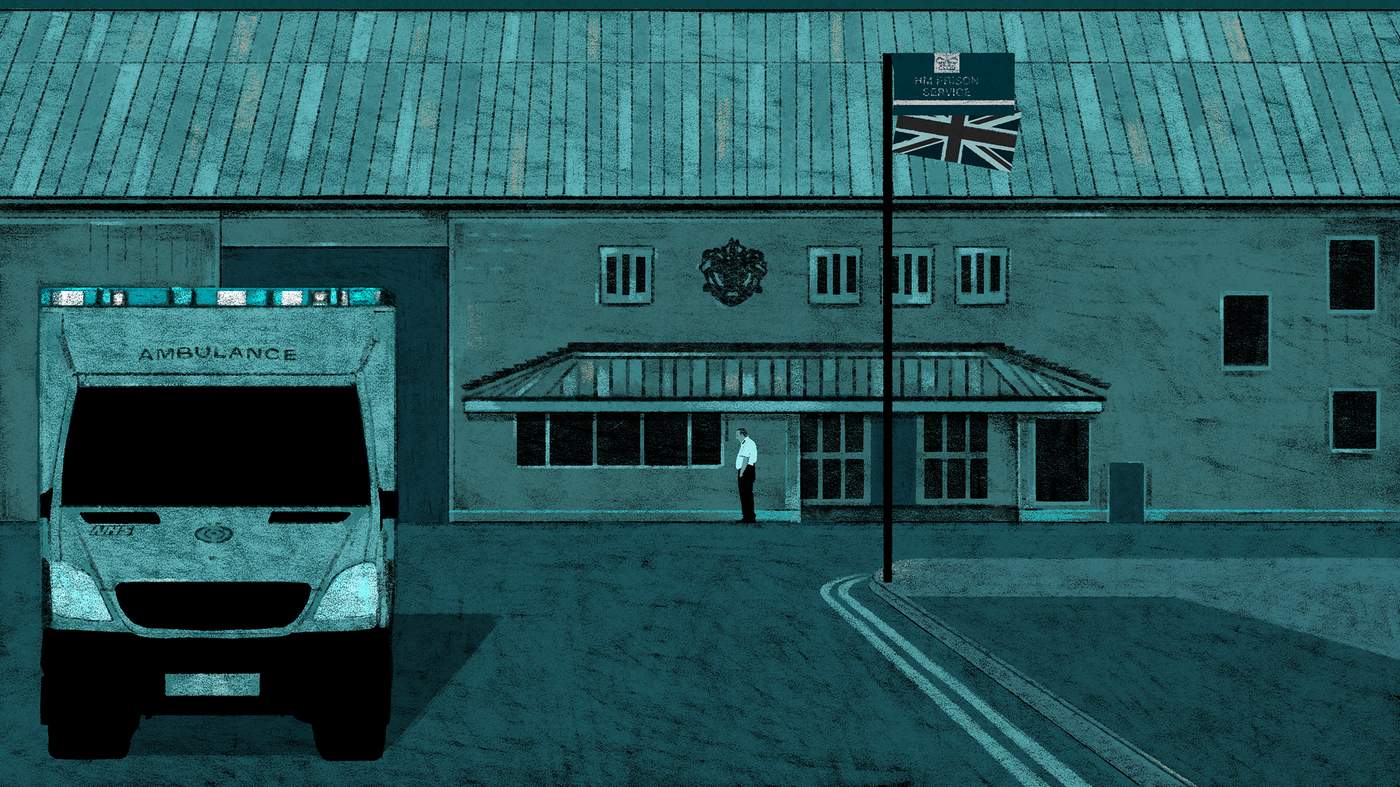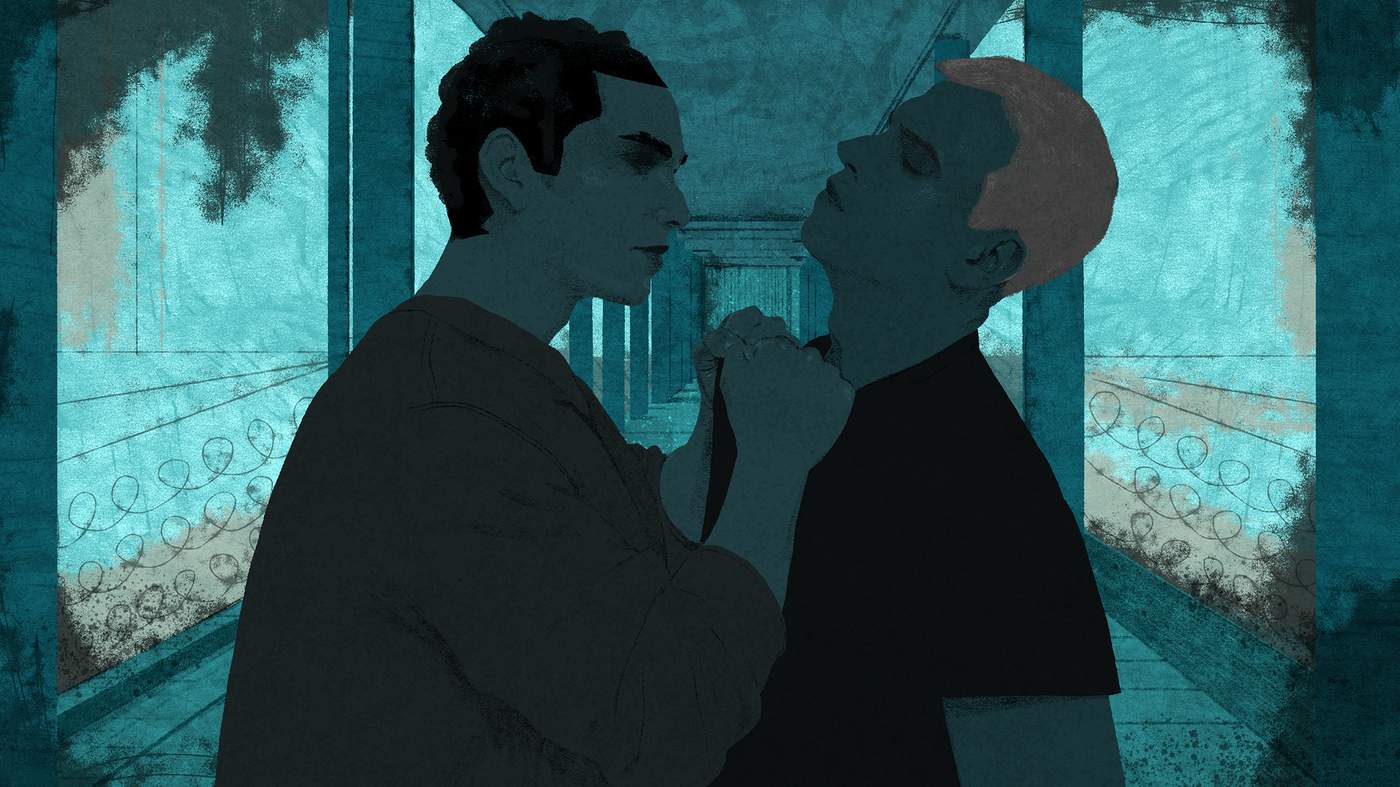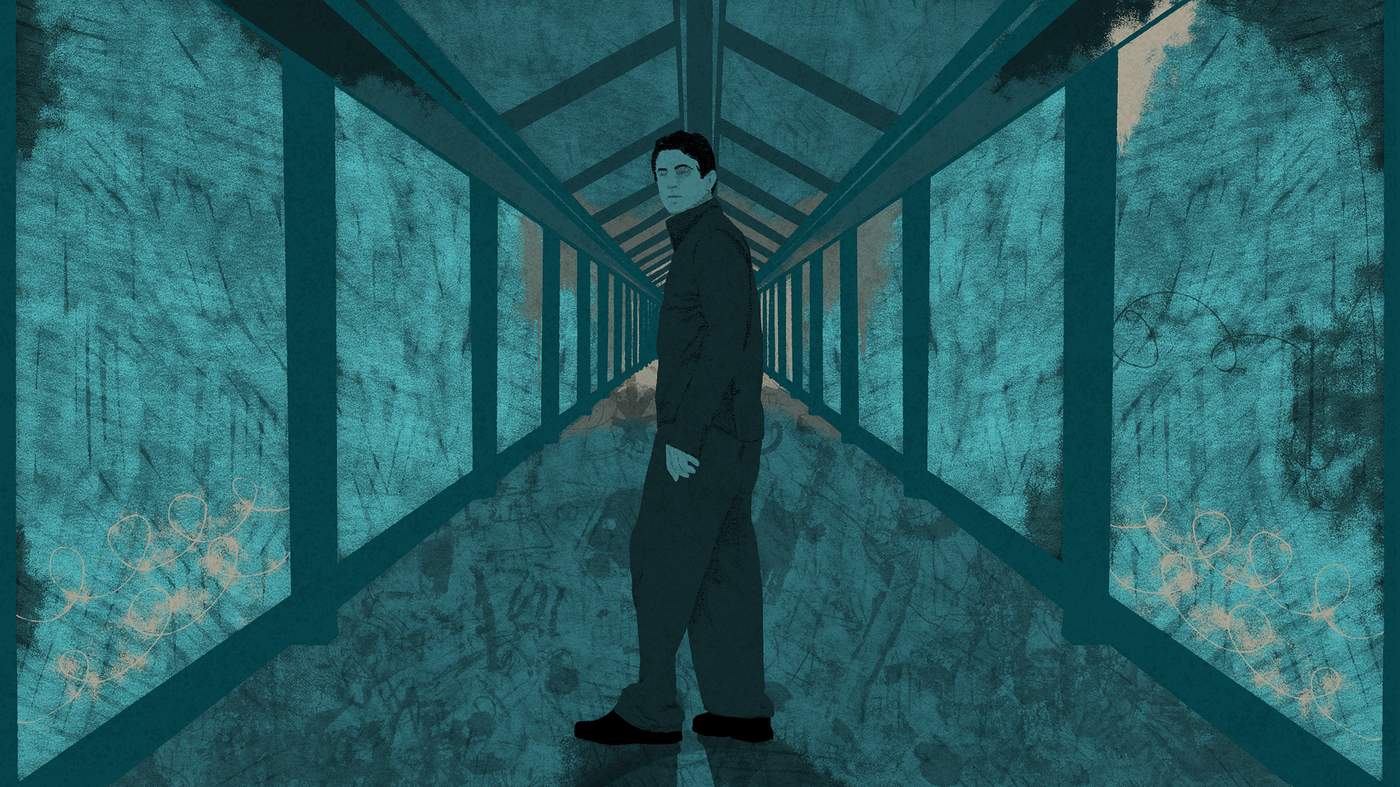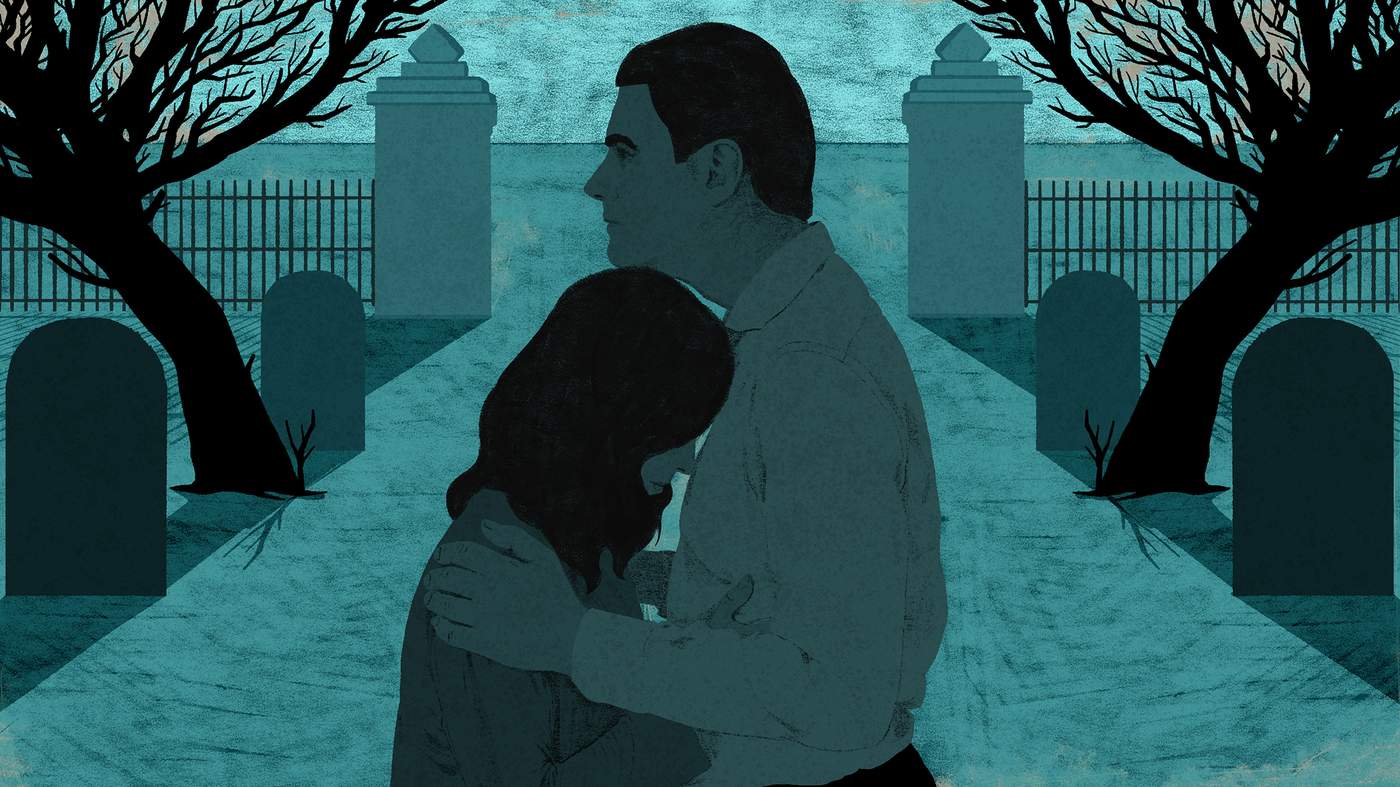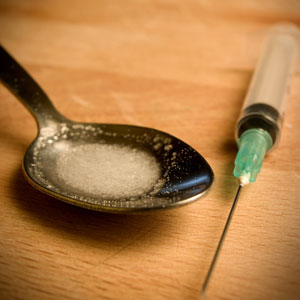The Mount is built on the site of a former RAF station in the village of Bovingdon in Hertfordshire. You can still see the remains of the control tower.
Another part of the old RAF base holds an outdoor market where you can get everything from cheap trainers to Chinese food.
Once a tiny medieval village, Bovingdon expanded rapidly after World War Two and is now a 9,000-strong community, firmly ensconced in the London commuter belt.
The prison is home to just under 1,000 men. The names of its wings mostly refer to WW2 bomber pilots - Lakes, Ellis, Fowler, Brister. It’s category C - a closed prison but one where inmates typically serve shorter sentences for more minor crimes.
But being the nearest category C prison to London, it has a lot of prisoners from the capital. A lot of inner-city mentality lands in rural Hertfordshire, says Michael (not his real name), a prison officer with two decades of experience who has worked in The Mount.
Short-staffing always causes problems. Experienced staff left and were not fully replaced. A high proportion of officers and managers had less than two years’ experience.
Many other prisons have also been struggling. In November 2016, the then Justice Secretary Liz Truss announced plans for more funding and for 2,500 extra officers across the system in England and Wales. Up until then officer numbers had fallen from about 25,000 in 2010 to just 18,000.
“A lot of problems are caused by staff shortages,” says Michael. But while staff shortages have caused many prisons to struggle, another factor has pushed some to the brink - Spice.
Spice was originally a brand name but has come to be used generically for a number of synthetic replacements for cannabis created from the 1980s onwards.
These substances were designed to mimic cannabis, but some experts say they can be up to 100 times more potent.
Soon after their invention they were being used recreationally, marketed as “legal highs”. A rapid spread was to follow.

By 2012, the drug was beginning to have a foothold in British prisons and by 2015 it was everywhere.
Spice became illegal in May 2016, under the Psychoactive Substances Act.
There was some progress, but the change in the law did not stop the drugs getting into prison. Ministry of Justice figures obtained by the ���˿��� show Spice seizures in the six months after the ban were 20% down in prisons in England and Wales.
But not a single month passed without Spice being seized in The Mount between October 2015 and June 2017.

Every night, drones would fly in to deliver the drug, taking advantage of the absence of netting, a report by the prison's independent monitoring board noted. That was addressed and drone deliveries were declining, its report suggested last year, but drugs were still getting in.
In February this year, 50 prisoners were randomly tested - 24 had taken a drug of some kind.
Lots of prisons have problems with Spice, and the effect of this drug on prison life is chilling.
“Spice is the worst drug I’ve ever seen,” says Michael, whose duties included administering drug tests.
“Unless you see a full-on Spice attack you can’t imagine. It’s like they’re absolutely paralytically drunk but can also speak.
“If you didn’t know better you would say they were fitting. It’s extreme.”
As well as these dramatic zombie-like “attacks”, Spice has also been linked to a wave of self-inflicted deaths in prison.
Figures from the Prison Ombudsman show that 79 prisoners died in England and Wales between June 2013 and September 2016 who were either known to use synthetic cannabinoids, or were strongly suspected to have taken them before death.
In 42 concluded inquests from this period, 27 of the deaths were deemed to be self-inflicted.
Michael says problems connected with Spice exacerbate short-staffing.
He remembers three or four ambulances attending The Mount in a single day for separate Spice attacks. Officers have to accompany inmates to hospital.
“The impact on staff is demoralising. For each person in hospital, that takes four staff out of the system for 24 hours.”
In November 2016 alone there were 70 emergency service call outs, mainly for drug-related problems. More than half of those occurred in a single week.
And the popularity of the drug in prisons creates a dangerous Spice economy.
Lots of prisons have problems with Spice, and the effect of this drug on prison life is chilling.
“Spice is the worst drug I’ve ever seen,” says Michael, whose duties included administering drug tests.
“Unless you see a full-on Spice attack you can’t imagine. It’s like they’re absolutely paralytically drunk but can also speak.
“If you didn’t know better you would say they were fitting. It’s extreme.”
As well as these dramatic zombie-like “attacks”, Spice has also been linked to a wave of self-inflicted deaths in prison.
Figures from the Prison Ombudsman show that 79 prisoners died in England and Wales between June 2013 and September 2016 who were either known to use synthetic cannabinoids, or were strongly suspected to have taken them before death.
In 42 concluded inquests from this period, 27 of the deaths were deemed to be self-inflicted.
Michael says problems connected with Spice exacerbate short-staffing.
He remembers three or four ambulances attending The Mount in a single day for separate Spice attacks. Officers have to accompany inmates to hospital.
“The impact on staff is demoralising. For each person in hospital, that takes four staff out of the system for 24 hours.”
In November 2016 alone there were 70 emergency service call outs, mainly for drug-related problems. More than half of those occurred in a single week.
And the popularity of the drug in prisons creates a dangerous Spice economy.
Ben says addicts like Rob are especially vulnerable to bullying in prison. In Rob’s case he would buy things from “canteen” and then give them to other prisoners. Canteen is in effect a shop where each prisoner has a set allowance to spend and the goods are collected on Fridays.
“Rob never spent any money from his canteen [on things for himself],” says Ben. “I told the officers, ‘Stop his canteen, let’s see who’s taking this from him because he’s got nothing in his room.’
“Who is it taking it from him? If he’s got money where’s the money going to? Why is nobody checking the bullying?”
Other prisoners would stand alongside Rob, ready to take his items as soon as they were handed to him. This happened in plain sight in front of officers, says Ben, but they dismissed his concerns.
“They’d say he’s an addict - he can deal with it. I said you can see he’s not capable of dealing with it.”
Robert was an easy target for drug dealers inside prison, says Alison.
On one occasion he was held hostage by another inmate for two hours.
Alison obtained prison records of Rob’s mental and physical health inside The Mount. They said “staff could hear Mr Morris being punched and crying out in pain”.
The records said: “When the hostage situation was resolved, Mr Morris denied that he was being punched, which was challenged by staff.”
Rob told officers that he did not want to press charges and did not want to get other prisoners in trouble.
Staff on Rob’s wing told mental health services that he was a regular Spice user and “allows other prisoners to punch [him] as payment”.
“That’s what they do, they completely and utterly bully a vulnerable person,” says Alison.
The Spice trade has cultivated bullying in many prisons, says Mike Trace, chief executive of the Forward Trust. The charity helps prisoners with drug and alcohol dependence and ran a centre in The Mount.
Last year the trust stopped running rehabilitation courses because drugs were too readily available across the prison.
“The scale of the consumption of Spice was also creating violence and intimidation problems because it was gang-led.”
Prisoners undergo “Spice dares” - ridiculous challenges either while high on Spice or in return for more of the drug, says Ben. Their behaviour is erratic enough without being goaded or forced into worse.
“I’ve seen people being dragged [around the floor] banging their heads into walls,” says Ben.
“People watch people on Spice and they just see it as entertainment. This is what keeps them happy in prison.”
Sexual violence was driven by the drug trade, Ben believes.
“I’ve heard of inmates being offered spice for sexual favours. It’s a bit rampant actually.”
Alison understands that Rob was subjected to sexual abuse inside the prison, recorded in his medical records as a “suspected assault”. She says her son’s release papers also showed he had received rape counselling.
“I never asked Robert about that because it could humiliate him more.”
She says on release that information was not passed on to his probation officer, psychiatrist or his mental health team.
“And so when he came out he had to live with all of those things that had happened to him.”
Ben says addicts like Rob are especially vulnerable to bullying in prison. In Rob’s case he would buy things from “canteen” and then give them to other prisoners. Canteen is in effect a shop where each prisoner has a set allowance to spend and the goods are collected on Fridays.
“Rob never spent any money from his canteen [on things for himself],” says Ben. “I told the officers, ‘Stop his canteen, let’s see who’s taking this from him because he’s got nothing in his room.’
“Who is it taking it from him? If he’s got money where’s the money going to? Why is nobody checking the bullying?”
Other prisoners would stand alongside Rob, ready to take his items as soon as they were handed to him. This happened in plain sight in front of officers, says Ben, but they dismissed his concerns.
“They’d say he’s an addict - he can deal with it. I said you can see he’s not capable of dealing with it.”
Robert was an easy target for drug dealers inside prison, says Alison.
On one occasion he was held hostage by another inmate for two hours.
Alison obtained prison records of Rob’s mental and physical health inside The Mount. They said “staff could hear Mr Morris being punched and crying out in pain”.
The records said: “When the hostage situation was resolved, Mr Morris denied that he was being punched, which was challenged by staff.”
Rob told officers that he did not want to press charges and did not want to get other prisoners in trouble.
Staff on Rob’s wing told mental health services that he was a regular Spice user and “allows other prisoners to punch [him] as payment”.
“That’s what they do, they completely and utterly bully a vulnerable person,” says Alison.
The Spice trade has cultivated bullying in many prisons, says Mike Trace, chief executive of the Forward Trust. The charity helps prisoners with drug and alcohol dependence and ran a centre in The Mount.
Last year the trust stopped running rehabilitation courses because drugs were too readily available across the prison.
“The scale of the consumption of Spice was also creating violence and intimidation problems because it was gang-led.”
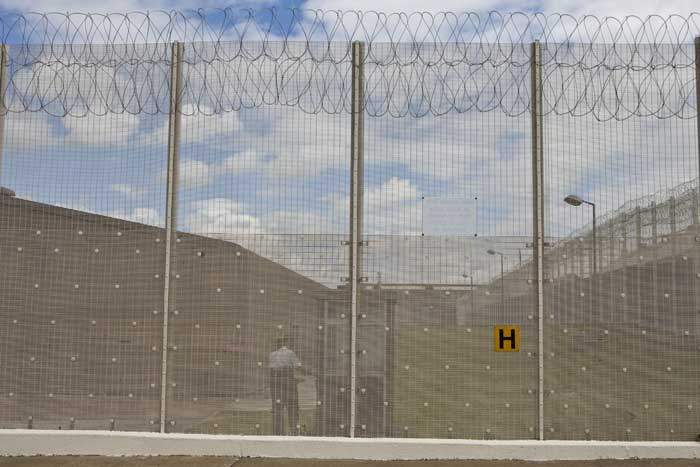
Prisoners undergo “Spice dares” - ridiculous challenges either while high on Spice or in return for more of the drug, Ben says. Their behaviour is erratic enough without being goaded or forced into worse.
“I’ve seen people being dragged [around the floor] banging their heads into walls,” says Ben.
“People watch people on Spice and they just see it as entertainment. This is what keeps them happy in prison.”
Sexual violence was driven by the drug trade, Ben believes.
“I’ve heard of inmates being offered spice for sexual favours. It’s a bit rampant actually.”
Alison understands that Rob was subjected to sexual abuse inside the prison, recorded in his medical records as a “suspected assault”. She says her son’s release papers also showed he had received rape counselling.
“I never asked Robert about that because it could humiliate him more.”
She says on release that information was not passed on to his probation officer, psychiatrist or his mental health team.
“And so when he came out he had to live with all of those things that had happened to him.”
“I’ve seen people dance on netting, be jabbering wrecks on the stairs, tell officers they love them.”
Spice’s impact on existing mental health problems is devastating, says Michael.
“I can’t blame the prisoners. They can’t get a beer out the fridge after a bad day. I come home and watch a film. That’s my escapism.”
He says the general mental health of prisoners has been in decline for years.
“When I joined the service two decades ago, there were very few mental health problems. Now it seems only one in three hasn’t got a mental health issue. It’s that prevalent.
“I’ve had people walk up to me and slice their own stomach open.”
More than one in three (37%) prisoners report having mental health or well-being issues at any one time, according to surveys carried out by HM Inspectorate of Prisons for England and Wales.
The number of health emergencies and mental health interventions is rising throughout the prison system, says Mike Trace. Forward Trust tries to track them. Spice is causing both cardiac and respiratory problems as well as psychosis.
“The level of use of cannabis in prisons has been high for decades and what we’ve seen is a partial replacement of cannabis and tobacco with Spice. That’s the explanation for the much higher rates of hospitalisation and psychosis,” says Mr Trace.
In April 2015, an unannounced inspection of The Mount by the Chief Inspector of Prisons found that while secondary mental health care provision was deemed good, primary mental health services - the first port of call for inmates - were inadequate.
Michael has seen everything there is to see in prison. He says he’s witnessed 16 riots, cut down 12 inmates who had attempted suicide, and dealt with six deaths.
He believes more sheltered accommodation needs to be provided for low-level offenders with mental health problems.
“There is still a view from judges that for people with diagnosed mental health illness, prisons are a place of safety,” says the President of the Prison Governors Association, Andrea Albutt.
“They are not a place of safety. Someone with mental health illness is very vulnerable.”
Just before he was released from The Mount in September 2016 Rob wrote a letter, in effect for himself, setting out what he hoped to achieve when he got out.
It started: “My main aim on my release from prison is to make my parents proud.”
The letter was an assessment of the flaws in his character and what he needed to do to make things better and restore his relationships with his family. He talked of his severe depression. And of giving up smoking Spice.
He finished by writing: “I wonder when it was that I chose to get off the ride - one too many trips and an unstable mind makes for a complete mess.”
Robert Morris died on 3 March 2017 at the age of 25.

It was just six months after he left The Mount, although he had also spent a stint back at HMP Peterborough in that time after being arrested for being drunk and disorderly.
He was found slumped in a chair in his room in a supported living accommodation unit, having inhaled his own vomit after drinking heavily.
The coroner’s report into Rob’s death recorded a verdict of misadventure. But it criticised a failure to rehabilitate him and the lack of attention paid to his mental illness.
“During his time in prison he suffered significant abuse but his severe mental illness does not seem to have been fully recognised or addressed and an opportunity for beneficial treatment that this period of detainment afforded was missed,” the coroner said.
(Below: Alison, Rob's mother)
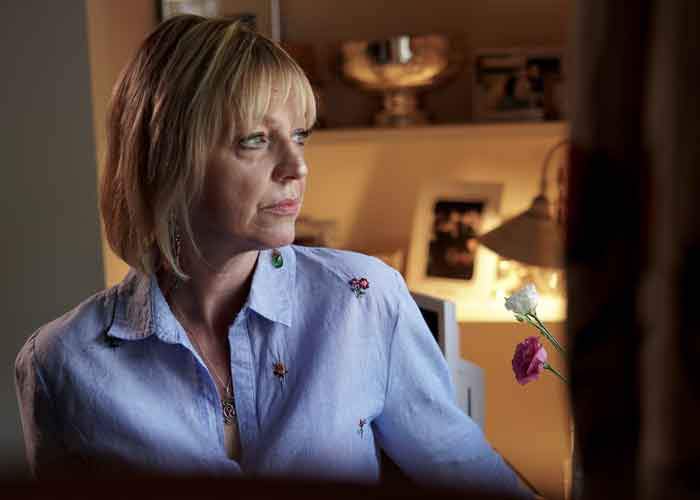
From early 2015 it had been clearly established that Rob “suffered from paranoid schizophrenia exacerbated by his alcohol and illicit drug abuse”.
There’s no doubt Rob Morris must have been a complex prisoner to deal with. His prison records show he refused or failed to take medication on five occasions.
But it's clear he suffered a lot during his time in prison. In the first few months the records state that he was held hostage, as well as suffering bruises and abrasions on his body, a number of Spice incidents, suspected relapses of schizophrenia and a suspected sexual assault. After nearly three and a half months he was moved to a different wing.
The current Chief Inspector of Prisons, Peter Clarke, has said that jails have become "unacceptably violent and dangerous places" with attempted reforms undermined by the presence of Spice and similar drugs among inmates. In a recent report he criticised “the shockingly high numbers who acquire a drug habit while they are detained”.
But the Ministry of Justice says it has tackled the rise in Spice by “bringing in 300 specialist drug dogs, new body scanners and making it a criminal offence to possess NPS [synthetic drugs such as Spice] in prison”.
Ms Albutt does not think these changes have had an effect yet and says drug use and mental health problems remain ubiquitous across the prison system.
The effect of funding cuts, and the loss of experienced staff, was exacerbated by other changes.
“A lot of prisons are in dire straits. We lost years and years of knowledge and at the same time the demographics of prisoners started to change so we had younger, more violent, less respectful men in prison.
“Organised crime gangs managed to get a hold of our prisons. Staff are scared. Self-harm, violence, prisoner on prisoner - every stat has gone up.
“We need more technology. We need body scanners. We need to have really well-resourced security departments joined up with the police. We are recruiting 2,500 officers but they’re brand new and coming into a prison service that has been in crisis for a long time. Once we get experienced officers and trust with prisoners - it will take time.”
The death of a former prisoner isn’t the kind of thing that normally makes headlines. But Rob’s family and friends will always remember that prison was a place where he couldn’t find the help to be who he wanted to be.
“I am not ashamed of my son,” says Alison. “I’m actually quite proud of Rob because he suffered an awful lot in his life.
“At his funeral we had 200 people. They remembered the Robert that was well.”
Author: Noel Titheradge
Illustrations: Rebecca Hendin
Online production: Ben Milne
Editor: Finlo Rohrer
Photography: Press Association; Shutterstock; Getty Images; Science Photo Library
All images subject to copyright
Built with Shorthand
